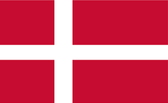
Call 0330 880 3600 Calls may be monitored or recorded. Opening Times.
- TRAVEL INSURANCE
- COVID-19 COVER
- More Options
- Help & Advice
- Existing Customers

Call 0330 880 3600 Calls may be monitored or recorded. Opening Times.

Need help?
UK Customer Services0330 880 3600*
Open Monday to Friday 9:00am to 6pm, Saturday 8:30am to 4pm and closed Sundays.
*Calls are recorded for training and quality purposes.

Official name: Kingdom of Denmark
Capital city: Copenhagen
Official language: Danish, English
Population: Around 5.9 million
Currency: Danish krone (DKK)
Time zone: GMT+1
Driving side: Right
Climate: Temperate maritime climate with mild summers, cool winters, and frequent rainfall year-round
Denmark, the southernmost of the Nordic countries, is a nation of islands, coastline, and understated charm. Known for its progressive society, high quality of life, and design-led culture, it blends Viking heritage with modern innovation. Copenhagen is a hub of cycling, architecture, and gastronomy, while the wider country offers sandy beaches, fairy-tale castles, and historic towns. Denmark also governs Greenland and the Faroe Islands, each with their own distinctive landscapes and traditions.
Denmark consists of the Jutland Peninsula and over 400 islands, of which about 70 are inhabited. The terrain is largely flat, with rolling farmland, low hills, and an extensive coastline shaped by the North Sea and the Baltic Sea. The highest point is Møllehøj at just 171 metres. Its maritime climate is shaped by the surrounding seas, resulting in cool, wet winters and mild summers.
Copenhagen Airport is the main international gateway, offering extensive European and intercontinental connections. Denmark has an efficient rail network linking major cities, with Copenhagen connected to Malmö, Sweden, via the Øresund Bridge. Domestic travel is easy by train, bus, or bicycle, and ferries link the islands. Cycling is deeply embedded in Danish culture, with excellent infrastructure in towns and cities. Driving is straightforward, but fuel and parking are expensive.
As an EU and Schengen member, Denmark allows UK citizens and many other nationals visa-free entry for short stays of up to 90 days in a 180-day period. Longer stays for work or study require appropriate visas or permits. The British Embassy is located in Copenhagen, and most countries maintain diplomatic representation in the capital.
The Danish krone (DKK) remains the national currency; Denmark has opted out of adopting the euro. Credit and debit cards are widely accepted, including contactless payments, though small shops and rural businesses may prefer cash. ATMs are readily available. Denmark is one of the more expensive countries in Europe, with high costs for food, drink, and accommodation, though standards are generally excellent.
Denmark’s healthcare system is of a high standard, with well-equipped hospitals and clinics throughout the country. Emergency care is widely available, and English is commonly spoken among medical staff. EU residents can use an EHIC/GHIC card for necessary state-provided treatment, but comprehensive travel insurance is advised to cover private care or medical evacuation. Pharmacies (Apotek) are widespread, and tap water is safe to drink everywhere.